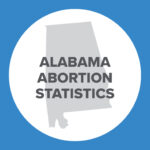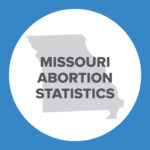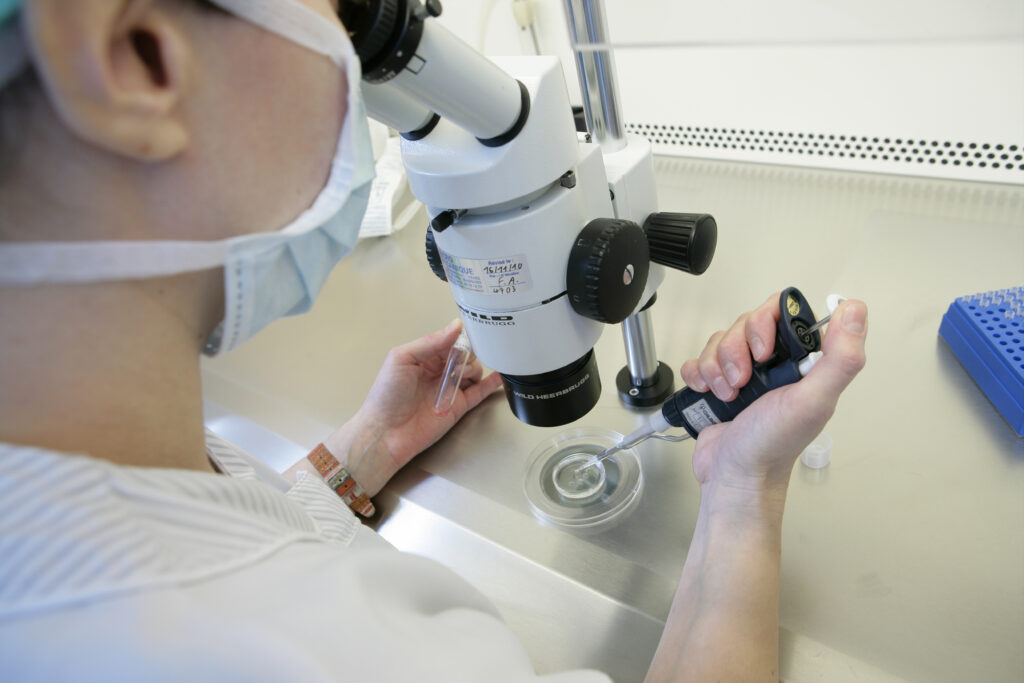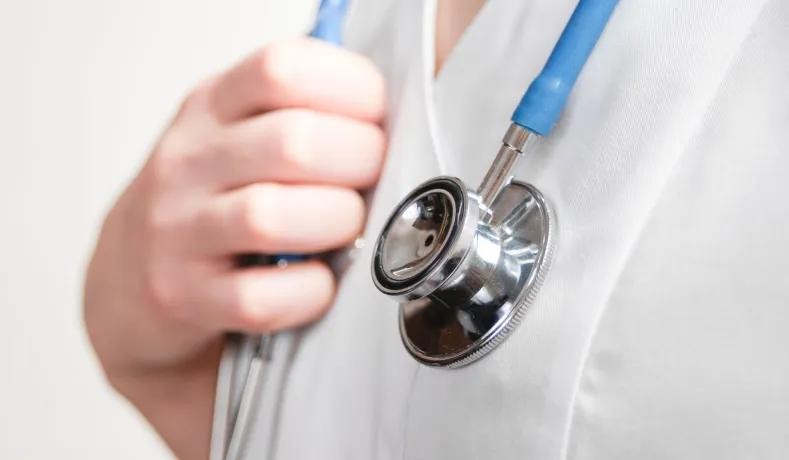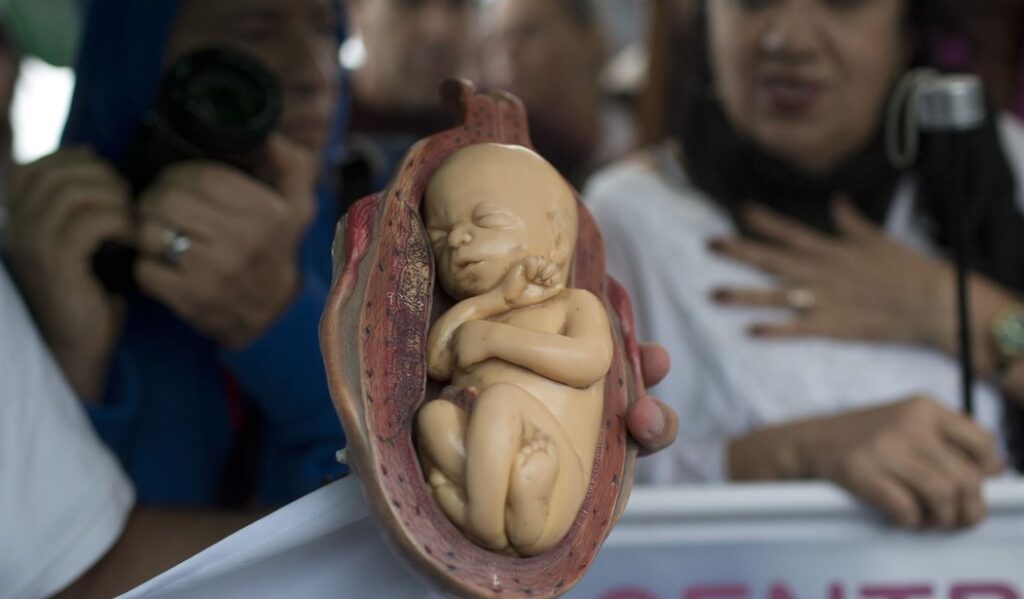Abortion “Shield Laws”: Pro-Abortion States Seek to Force Abortion on Life-Affirming States
This is Issue 96 of the On Point Series.
Introduction
In post-Dobbs[1] America, lawmakers in abortion-promoting states are predictably repealing their paltry life-affirming statutes and solidifying the special legal status that their states afford to abortion.[2] However, they are not satisfied with stopping there. The 19 states (and the District of Columbia) that have broad abortion protection statutes now have “abortionist legal shields,” established by executive order and/or statute, immunizing abortionists and abortion “facilitators” from criminal, civil, and professional consequences when they violate other states’ abortion laws, including laws requiring parental involvement in a minor’s abortion decision.
In addition, pro-abortion governors in two other states that do not have broad abortion protection statutes—Arizona and North Carolina—issued executive orders establishing abortionist legal shields. Arizona Governor Katie Hobbs (D) even declared that the Attorney General’s office alone can prosecute violations of Arizona abortion laws, a move that will chill any enforcement of the state’s own pro-life laws.[3]
This paper discusses how abortionist legal shields encourage unregulated abortion tourism (Section I), inhibit state-to-state cooperation in civil and criminal investigations (Section II), and permit abortionists to prescribe and ship drugs to women and girls living in states where they are not licensed, thereby violating locale-of-care medical standards (Section III).
Background
While most legal shield laws purport to protect women seeking “reproductive health care,” their real purpose is to promote, increase, and shield anyone involved with abortion— particularly today’s dominant method, chemical abortion—from criminal,[4] civil, or professional liability. While not all the laws are identical, the states generally will:
- Decline to enforce judgments or penalties issued in another state;
- Refuse to extradite abortionists;
- Reject the application of any life-affirming law from a pro-life state in the pro-abortion state’s courts;
- Prohibit negative professional consequences, including the loss or denial of malpractice insurance, for an abortionist who performs abortions legal in the pro-abortion state, even when penalties were issued against the abortionist in another state; and
- Withhold all cooperation in any extra-jurisdictional investigation of abortions that are legal in the pro-abortion state.
The effect of these laws is to attract abortionists, women and girls seeking abortion, and individuals “assisting” women and girls with obtaining abortions to these states (see Section I). In fact, the protection of abortion seems to be such a priority for these states that they are willing to destroy comity and good will with neighboring states trying to investigate violations of their own laws or seeking the enforcement of their courts’ legal processes or judgments (see Section II).
Further, the states that have adopted the latest and most extreme abortionist legal shield— explicitly protecting abortionists who send abortion drugs to women and girls in states where the abortionists do not have licenses to practice medicine and where there are more protective laws for women and girls—are fundamentally and dangerously altering the locale of care for the recipients of these drugs (see Section III).
These concerns are addressed in articles written by three law professors who claim partial credit for developing the abortionist legal shield strategy. David S. Cohen, Greer Donley, and Rachel Rebouché[5] acknowledge that the abortionist legal shields “threaten basic principles of comity between states, possibly resulting in the breakdown of state-to-state relations and ultimately retaliation.”[6] They also concede that “shifting the locale of care is a significant departure from the standard of care, provisions of state medical practice acts, and the guidance of professional organizations.”[7] However, they argue that post-Dobbs circumstances “may militate for treating abortion differently than other healthcare.”[8] Further, the authors state that “given the post-Dobbs crisis for access, [they] believe treating abortion different … would be beneficial to facilitating access in the current environment.”[9]
In other words, promoting abortion is more important to both the authors and the states that have adopted their recommendations than the bedrock constitutional principle of Full Faith and Credit (see Section II) and the established medical standard that the locale of care is where the patient is located (see Section III).
I. Abortionist Shield Laws Promote Unregulated Abortion Tourism
In states with abortionist legal shields, abortionists can perform surgical abortions on women and girls from other states, prescribe abortion-inducing drugs that women and girls may later consume in pro-life states, and even ship the drugs into life-affirming states—all without criminal, civil, or professional repercussions. Further, abortion-promoting organizations are providing lodging, financing, and other “services” to women and girls seeking abortions so that they can travel to states with abortionist legal shields.[10]
Some governors and legislators who author and promote these laws transparently acknowledge that their effect will be to increase the number of abortionists and the number of women from other states having abortions in their states, and openly welcome this result. For instance, Colorado’s Senate Bill 23-188,[11] signed into law in April 2023, states that “it stands to reason that reproductive … health-care providers in states with abortion … bans will want to relocate to states that protect their practice and values, thereby becoming an important part of Colorado’s health-care infrastructure.” The same law emphasizes at a later point, “It is critical that Colorado stand up for the providers of [abortion], their patients, and those who support them.” California Assembly member Buffy Wicks (D) stated shortly before Roe’s demise that the goal of California’s abortionist shield laws is “to really enshrine and ensure that California is a reproductive freedom [i.e. abortion] state for all.”[12] Around the same time, New York Governor Kathy Hochul (D) stated that “[a]nyone who needs care [i.e. abortion], we welcome you with open arms.”[13]
Tragically, abortion-embracing states like Colorado, California, and New York lack or have ineffectual parental involvement and informed consent requirements,[14] opening the door for sex traffickers and statutory rapists to bring women and girls into their states for abortions without detection or consequence. Alternatively, abusers can coerce their victims into requesting abortion-inducing drugs through telemedicine, which are then shipped to the women or girls without any effective screening for coercion. One of the basic tenets of the abortionist legal shields is that the states that have them will not enforce the laws of pro-life states, effectively neutering efforts by lawmakers to protect their citizens who are facing pressure to abort.
II. Abortionist Shield Laws Hinder State-to-State Cooperation in Civil and Criminal Investigations
Full Faith and Credit shall be given in each State to the public Acts, Records, and judicial Proceedings of every other State. And the Congress may by general Laws prescribe the Manner in which such Acts, Records and Proceedings shall be proved, and the Effect thereof. (U.S Constitution, art. 4, sec. 1)
The Full Faith and Credit clause of the U.S. Constitution was intended to “assure that the courts of one state will honor the judgments of the courts of another state without the need to retry the whole cause of action.”[15] This clause was essential for unifying the states as one country, and the United States Supreme Court has stringently required states to recognize and enforce sister-state civil judgments, “even those that offend the public policy of the enforcing state.”[16] Further, cooperation in civil investigations is the norm; the vast majority of states have enacted an Interstate Depositions and Discovery Act which “provides simple procedures for courts in one state to issue subpoenas for out-of-state depositions.”[17]
Regarding criminal law, the Interstate Rendition Clause found in Article IV, Section 2, Clause 2 of the U.S. Constitution requires a “Person charged in any State” with a crime who flees to another state “on Demand of the executive Authority of the State from which he fled” to “be removed to the State having Jurisdiction of the Crime.” Under this Constitutional requirement, the offender must have chosen to leave the state where the crime occurred. However, states may agree to render charged individuals or subpoenaed witnesses even if they never entered the state prosecuting the crime.[18] In fact, interstate cooperation in criminal investigations is common, and every state has some form of the Uniform Act to Secure the Attendance of Witnesses from Without a State in Criminal Proceedings.[19] These laws provide a path for compelling a state to produce witnesses and documents requested by a sister-state.
When describing abortionist legal shields, however, the laws’ architects Cohen, Donley, and Rebouché[20] acknowledge that “each of these interventions [] strike at the heart of basic, fundamental principles of law in the United States’ federalist system—interstate comity and cooperation.”[21] The authors are correct—pro-abortion states with shield laws will not give “full faith and credit” to the “public acts, records, and judicial proceedings” of pro-life states that target abortions that are legal in the pro-abortion states. They admit that these laws are written to “thwart interstate investigations and discovery, both civil and criminal, into [abortions] provided in their states for patients from other states.”[22] This is accomplished by exempting abortionists from “interstate discovery and interstate witness subpoena laws,” discussed above, and “prohibiting state and local law enforcement agencies from cooperating with other states’ investigations into abortion-related crimes and lawsuits.”[23]
Cohen, et al.’s chief concern, however, is not that these laws are an assault on the Constitution and our system of governance, or that they interfere with the investigation of crimes, but that the new laws in pro-abortion states fail to “protect the patients and helpers who stay in, or return to, an antiabortion state if a law targets their conduct.”[24] Their concern is unwarranted, however, because most pro-life laws explicitly exclude woman and girls from criminal or civil liability and do not target those who “help” them obtain abortions (unless the “helpers” are coercive or acting in violation of parental involvement laws).[25] Further, the vast majority of pro-life lawmakers do not support prosecuting women for seeking or having abortions in other states; in fact, such a prosecution would likely violate federal law.[26]
Cohen, et al. acknowledge that “targeting cross-border abortion provision has been almost nonexistent until this point,”[27] yet they hypothesize that “state prosecutors and legislators will likely try to impose civil or criminal liability on their citizens who travel out of state to obtain an abortion, those who help them, and the providers.”[28] Through these alarmist claims, the authors attempt to obscure the truth that pro-life laws target the behavior of abortionists and predators,[29] not women and girls seeking abortion. The true beneficiaries of legal shields are the abortionists living in pro-abortion states who can prescribe and mail abortion-inducing drugs to women and girls in states where the abortionists are not licensed, and then abandon them to emergency rooms when they suffer complications (see Section III).
It will be virtually impossible for a prosecutor or civil attorney in a pro-life state to build a case against an abortionist who injures a woman or girl during a surgical or drug-induced abortion when the state where the abortionist lives will not cooperate with the investigation. Also, even if a pro-life state attempts to prosecute a “facilitator” of abortion who breaks parental involvement laws or laws prohibiting coercion, gathering evidence in such a case without cooperation from the state where the abortions occurred will be deeply challenging.
III. Some Abortionist Shield Laws Dangerously Alter the Locale of Care
The Federation of State Medical Boards (FSMB), which represents and supports all state medical boards,[30] states that “[a] physician must be licensed, or appropriately authorized, by the medical board of the state where the patient is located … Physicians who diagnose, treat, or prescribe using online service sites are engaging in the practice [of] medicine and must possess appropriate licensure in all jurisdictions where their patients receive care.” [31] Further, Cohen, et al. explain that “a typical” state medical practice act “includes some version of this statement: ‘the practice of medicine is determined to occur where the patient is located in order that the full resources of the state are available for the protection of that patient.’”[32] They concede that “there are important reasons for defining care as occurring where the patient is located—the state where the patient resides typically has the strongest interest and best means of protecting the safety of the resident patient.”[33]
Appropriate licensure and locale of care are deemed so important in the medical profession that FSMB’s “Guide to the Essentials of a Modern Medical Practice Act,” which provides model language to states for their individual medical practice acts, includes the following provisions:
- “A physician located in another state practicing within the state by electronic or other means without a license (full, special purpose or otherwise) issued by the [state medical] Board should be deemed guilty of a felonious offense.”[34]
- State medical boards may take “disciplinary action” for “practicing medicine in another state or jurisdiction without appropriate licensure.”[35]
Even when states participate in the Interstate Medical Licensure Compact[36] so that doctors can receive expedited permission to practice in other states, as over three-fourths of the states do, there is an assurance that “physicians subject to discipline in one state will be subject to discipline in another.”[37] Also, state membership requires document and health information sharing.[38]
The logic behind treating the patient’s location as the locale of care is clearly demonstrated in the abortion context. An abortionist whose only contact with an out-of-state patient is through telemedicine cannot detect and manage what FDA acknowledges are the “serious and potentially fatal complications associated with [inappropriately managed] medical abortion, including missed ectopic pregnancy and heavy bleeding from incomplete abortion.”[39] Medical tests are necessary to accurately assess an unborn child’s gestational age, particularly given that patients are frequently incorrect when they attempt to make this determination on their own.[40] A review of more than 33,000 drug-induced abortions revealed that failures requiring surgical follow-up steadily increased as gestational age increased.[41]
Further, without ultrasounds, the gold standard for diagnosing ectopic pregnancy, more ectopic pregnancies will be missed. The results will likely be catastrophic for women and lead to more deaths.[42] Remote abortionists are also unable to test patients to determine if they are Rh D-negative and therefore must be administered Rh D immune globulin to prevent Rh isoimmunization in future pregnancies, which can lead to pregnancy loss or severe injury to future unborn children.[43]
Out-of-state abortionists cannot ensure that the women and girls to whom they prescribe abortion-inducing drugs will have access to follow-up and emergency care when necessary. Nonetheless, Colorado, Massachusetts, New York, and Vermont have enacted laws that effectively shift the locale of care for a woman who receives abortion-inducing drugs from the woman’s home state to the abortionist’s home state by shielding the abortionists “regardless of the patient’s location.”[44] California is expected to enact one of these provisions soon,[45] and at least a dozen other states will likely follow. Even after acknowledging the importance of treating the patient’s state as the locale of care, Cohen, et al. argue:
Professional organizations and state medical boards could carve out more explicit exceptions for abortion care given the increasing number of abortion travelers and need for telehealth for abortion … The sheer complexity of interstate abortion conflicts on the horizon, which are arguably unique, as well as the health consequences of unwanted pregnancies being carried to term, may militate for treating abortion differently than other healthcare post-Dobbs.[46]
Lawmakers in these five states have bypassed medical boards and answered the authors’ call. Further, Aid Access—an international organization that has historically shipped abortion-inducing drugs illegally into the United States[47]—is already taking advantage of these “locale-of- care” provisions. They claim that since June 18, seven abortionists[48] in these five states[49] have sent abortion-inducing drugs to “more than 3500 people living in states where abortion is banned.”[50] While these new laws have not been tested in court yet, one abortionist in Massachusetts flippantly told The Guardian that she is not very concerned about legal challenges: “If it happens, it happens, and we are prepared … But I’m definitely not taking any vacations in Texas.”[51]
Another abortionist working with Aid Access stated that some of the women and girls who contact them are comforted that they are getting the pills from a licensed abortionist “through an FDA-approved pipeline.”[52] Tragically, this connection with abortionists provides false comfort. As discussed above, a true doctor-patient relationship cannot exist between an abortionist in one state and a woman or girl in a state where the abortionist is not licensed, with their only interaction being through telemedicine. Further, while the FDA-approved chemical abortion regimen is only approved through 10 weeks‘ gestation, Aid Access abortionists are willing to prescribe the drugs through 13 weeks‘ gestation, making any claim that they are operating in a manner sanctioned by FDA deceitful.[53] Similarly, Planned Parenthood generally informs prospective customers that a woman can undergo chemical abortion “up to 77 days (11 weeks)” and advertises this as a service.[54]
Conclusion
Abortionist legal shields are written with one major purpose in mind: for abortion-friendly states to undermine efforts to protect unborn children and their mothers in pro-life states, effectively making abortion legal and highly unregulated throughout the country. Their primary tool is abortion drugs by mail, as more states pass laws that change the locale of care from the patient’s state to the abortionist’s state. Their secondary plan is to attract more abortionists to their states so they can handle the influx of women and girls, aided by abortion funds,[55] seeking surgical abortions or abortion-inducing drugs in person.
While pro-life states cannot prevent women from traveling to other states for abortions, the federal government should ensure that the laws in pro-life states are respected. A first step would be the enactment of the “Child Interstate Abortion Notification Act,”[56] currently under consideration in the House of Representatives, which penalizes with a fine or imprisonment anyone who takes a minor who is not his or her child to a state that has an abortionist legal shield to evade a parental consent or notification law. This law would be improved, however, by also penalizing abortionists who mail abortion-inducing drugs to minors in another state without complying with that state’s parental involvement law. Additional actions need to be taken to prevent abortion-inducing drugs from entering states that prohibit them. However, protecting pregnant minors would be a start.
Mary E. Harned, J.D. is an associate scholar at the Charlotte Lozier Institute.
[1] Dobbs v. Jackson Women’s Health Organization, No. 19-1392, 597 U.S. ___ (2022).
[2] See On Point 48; On Point 82; On Point 94. In at least 19 states (California, Colorado, Connecticut, Delaware, Hawaii, Illinois, Maine, Maryland, Massachusetts, Michigan, Minnesota, Nevada, New Jersey, New Mexico, New York, Oregon, Rhode Island, Vermont, and Washington) and the District of Columbia lawmakers have written explicit protection for abortion into their state codes, thereby ensuring that unborn children have virtually no protection at any stage of pregnancy. Many of these “abortion protection statutes” were enacted or broadened in the last few years, and previous papers discuss these laws as well as other recent pro-abortion statutes and executive actions.
[3] See Arizona’s Executive Order 2023-11, Protecting Reproductive Freedom and Healthcare in Arizona (June 22, 2023), and North Carolina’s Executive Order 263, Protecting Access to Reproductive Health Care Services in North Carolina (July 6, 2022).
[4] Some states qualify their laws by stating that they will comply with the federal constitutional requirement to extradite a criminal who flees from a state where he committed a crime, but not all state laws have this explicit caveat.
[5] In “The New Abortion Battleground,” the authors state that “[s]ome of the state efforts attempting to accomplish the protection described in this section have happened independent of this Article, … Other efforts have emerged in direct response to this Article’s exploration of how abortion-supportive proposals might be implemented. Over the past year, the authors have been actively involved in consulting with legislators and advocates in different states on protecting abortion care from out-of-state legal action. Thus, the first draft of this Article spoke of these efforts as possibilities; as of November 2022, lawmakers and executive officials have enacted or introduced concrete laws and executive orders inspired—at least in part—by this Article.” David S. Cohen, Greer Donley, & Rachel Rebouché, “The New Abortion Battleground,” 123 Col. Law Rev. 1, 43, fn. 238.
[6] Ibid., 52.
[7] David S. Cohen, Greer Donley, & Rachel Rebouché, “Abortion Pills,” 76 Stan. L. Rev. ___ , 35. (forthcoming 2024). https://papers.ssrn.com/sol3/papers.cfm?abstract_id=4335735
[8] Ibid., 37.
[9] Ibid., fn. 246.
[10] See National Network of Abortion Funds, “Common Questions about Abortion Funds,” https://abortionfunds.org/common-questions/.
[11] Co. S.B. 23-188, https://leg.colorado.gov/sites/default/files/2023a_188_signed.pdf.
[12] April Dembosky, “California lawmakers ramp up efforts to become a sanctuary state for abortion rights,” NPR (2 June 2022), https://www.npr.org/sections/health-shots/2022/06/02/1102317414/california-lawmakers-ramp-up-efforts-to-become-a-sanctuary-state-for-abortion-ri.
[13] “Governor Hochul Addresses Leaked Supreme Court Opinion on Roe v. Wade,” YouTube, https://www.youtube.com/watch?v=5DU-r7pxEAk.
[14] See Planned Parenthood, “Parental Consent and Notification Laws,” https://www.plannedparenthood.org/learn/teens/stds-birth-control-pregnancy/parental-consent-and-notification-laws.
[15] Heritage Guide to the Constitution (2005), 267.
[16] Ibid., 268. A defendant can argue that his circumstances meet a narrow exception to this rule, namely that the court issuing the judgment did not have personal jurisdiction over the defendant or that the judgment was penal in nature.
[17] Uniform Law Commission, “Interstate Depositions and Discovery Act,” https://www.uniformlaws.org/committees/community-home?CommunityKey=181202a2-172d-46a1-8dcc-cdb495621d35.
[18] Heritage Guide to the Constitution, 274.
[19] National Association of Attorneys General, “Subpoenaing Out-of-State Witnesses in Criminal Proceedings: A Step-by-Step Guide,” https://www.naag.org/attorney-general-journal/subpoenaing-out-of-state-witnesses/.
[20] See footnote 5.
[21] “The New Abortion Battleground,” 44.
[22] Ibid., 45.
[23] Ibid., 46.
[24] Ibid., 44.
[25] https://lozierinstitute.org/pro-life-laws-protect-mom-and-baby-pregnant-womens-lives-are-protected-in-all-states/
[26] Abortion advocates should find solace from U.S. Attorney General Merrick Garland’s post-Dobbs statement that under federal law, women can travel to obtain abortions where they are legal: “Today’s decision does not eliminate the ability of states to keep abortion legal within their borders. And the Constitution continues to restrict states’ authority to ban [abortion] provided outside their borders … under bedrock constitutional principles, women who reside in states that have banned access to [abortion] must remain free to seek [abortion] in states where it is legal. Moreover, under fundamental First Amendment principles, individuals must remain free to inform and counsel each other about [abortion] that is available in other states.”
[27] “The New Abortion Battleground,” 22.
[28] Ibid., 22-23.
[29] Idaho has enacted a law targeting predators who might attempt to transport pregnant minors across state lines for abortions in contravention of Idaho law: “An adult who, with the intent to conceal an abortion from the parents or guardian of a pregnant, unemancipated minor, either procures an abortion … or obtains an abortion-inducing drug for the pregnant minor to use for an abortion by recruiting, harboring, or transporting the pregnant minor within this state commits the crime of abortion trafficking. … Any person who commits the crime of abortion trafficking, as provided in subsection (1) of this section, shall be punished by imprisonment in the state prison for no less than two (2) years and no more than five (5) years.” Idaho H.B. 242 (2023).
[30] See Federation of State Medical Boards, “History,” https://www.fsmb.org/about-fsmb/history/; United States Medical Licensing Examination, “About the USMLE,” https://www.usmle.org/about-usmle#:~:text=The%20FSMB%20is%20a%20non,physicians%20who%20violate%20the%20law: “The FSMB is a non-profit organization that represents the 70 state medical and osteopathic boards of the United States and its territories. The individual medical boards are responsible for licensing physicians, investigating patient complaints, and disciplining physicians who violate the law. The FSMB acts on behalf of its state board members in providing a national assessment program, providing tools that facilitate the documentation and distribution of credentials, sponsoring a national data base for tracking disciplinary actions, and acting as a national voice for the individual boards on issues of importance to licensing and practice.”
[31] The Federation of State Medical Boards of the United States, “The Appropriate Use of Telemedicine Technologies in the Practice of Medicine,” 4, https://www.fsmb.org/siteassets/advocacy/policies/fsmb-workgroup-on-telemedicineapril-2022-final.pdf.
[32] Cohen, et al., “Abortion Pills,” citing The Federation of State Medical Boards of the United States, “A Guide to the Essentials of a Modern Medical Practice Act,” Tenth Edition 4 (2003), available at https://www.medicallicensedirect.com/files/A_Guide_to_the_Essentials_of_a_Modern_Medical_Practice_Act.pdf.
[33] Cohen, et al., “Abortion Pills,” citing American Medical Association, “Support for Board Report 22-3: Report of the Federation of State Medical Boards (FSMB) Workgroup on Telemedicine: The Appropriate Use of Telemedicine Technologies in the Practice of Medicine 1,” Apr. 21, 2022.
[34] Guide to the Essentials of a Modern Medical Practice Act,19.
[35] Ibid., 13.
[36] https://www.imlcc.org/wp-content/uploads/2022/11/IMLCC-Rule-Chapter-6-Coordinated-Information-System-Joint-Investigations-and-Disciplinary-Actions-Adopted-November-16-2018-Amended-11-8-2022.pdf.
[37] Cohen, et al., “Abortion Pills,” 36, citing Interstate Medical Licensure Compact Commission, “Rules on Coordinated Information System, Join Investigations and Disciplinary Actions,” Adopted Nov. 16, 2018, Amended Nov. 8, 2022, https://www.imlcc.org/wp-content/uploads/2022/11/IMLCC-Rule-Chapter-6-Coordinated-Information-System-Joint-Investigations-and-Disciplinary-Actions-Adopted-November-16-2018-Amended-11-8-2022.pdf; https://www.imlcc.org.
[38] Ibid.
[39] See FDA’s discussion of why provider qualification requirements are necessary for prescribing mifepristone. FDA’s citizen petition response dated Dec. 16, 2021, to the citizen petition submitted by the American Association of Pro-Life Obstetricians and Gynecologists and the American College of Pediatricians on Mar. 29, 2019, Docket No. FDA-2019`-P-1534, p. 23.
[40] https://lozierinstitute.org/the-no-test-medication-abortion-protocol-experimenting-with-womens-health/.
[41] Ibid.
[42] Ibid.
[43] The 2017 American College of Obstetricians and Gynecologists (ACOG) practice bulletin on Prevention of Rh D Alloimmunization states unequivocally that “Rh D immune globulin should be given to Rh D-negative women who have pregnancy termination, either medical or surgical” (ACOG Practice Bulletin 181: Prevention of Rh D Alloimmunization (Aug. 2017)). See also SOGC Clinical Practice Guidelines: Prevention of Rh Alloimmunization (No. 133, Sept. 2003), and Ingrid Skop, Fact Sheet: Rh D Isoimmunization. Charlotte Lozier Institute (Jan 2023), available at https://lozierinstitute.org/fact-sheet-rh-d-isoimmunization/.
[44] See Colo. Rev. Stat. § 12-30-121 (d); Mass. H.B. 5090, 2022 Leg. Reg. Sess. (Ma. 2022); N.Y. Crim. Proc. Law § 570.17; H.B. 89, 77th Gen. Assemb., Reg. Sess. (VT. 2023).
[45] https://legiscan.com/CA/text/SB345/id/2828744.
[46] “Abortion Pills,” 36-37.
[47] FDA issued a Warning Letter to Aidaccess.org in 2019 for “causing the introduction of a misbranded and unapproved new drug into interstate commerce.” See https://www.fda.gov/inspections-compliance-enforcement-and-criminal-investigations/warning-letters/aidaccessorg-575658-03082019. Aid Access continued mailing abortion pills within the U.S. regardless of law.
[48] https://www.theguardian.com/world/2023/jul/23/shield-laws-provide-abortion-care-aid-access
[49] Rebecca Grant, “Group using ‘shield laws’ to provide abortion care in states that ban it,” The Guardian, 23 Jul. 2023.
[50] “USA abortion providers Aid Access started serving all USA states,” AidAccess, Press Release, 14 July 2023.
[51] Grant, Ibid.
[52] Ibid.
[53] Ibid.
[54] The Abortion Pill. See “When can I take the aboriton pill?” Planned Parenthood. https://www.plannedparenthood.org/learn/abortion/the-abortion-pill (accessed August 7, 2023).
[55] https://abortionfunds.org/.
[56] https://www.congress.gov/118/bills/hr792/BILLS-118hr792ih.pdf.











